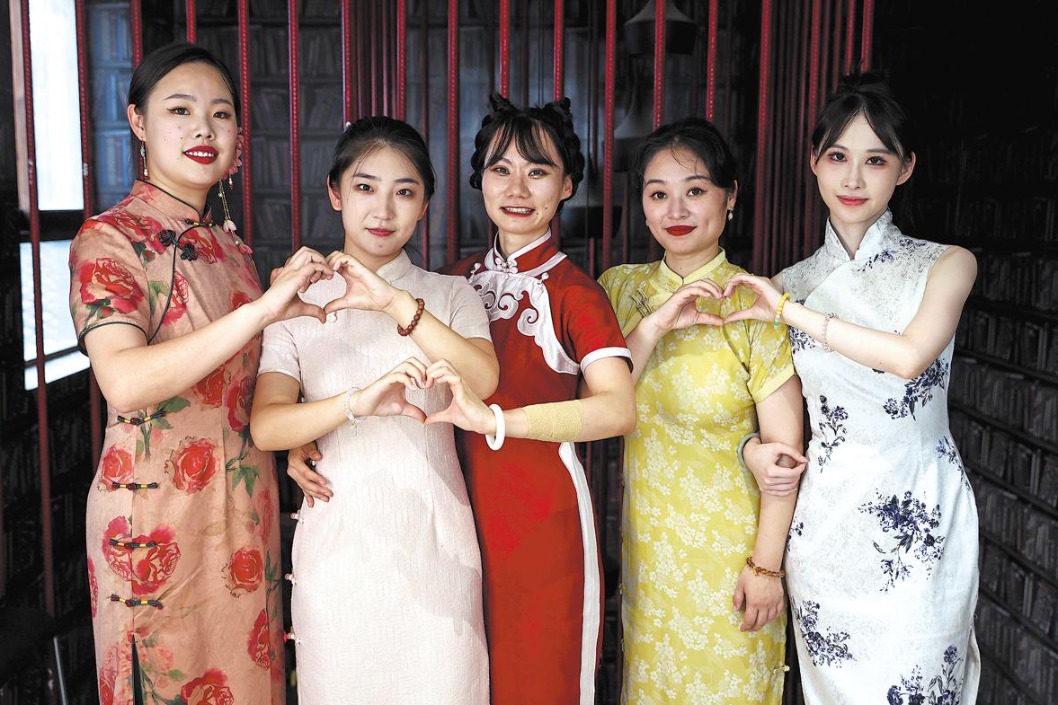Japanese nationals return home, thanks to Wuhan businessman

Without Zhu Dunyao, a businessman in Wuhan, it would have been much tougher for Japanese nationals living in the city to return home during the toughest times of the COVID-19 pandemic in January.
The Embassy of Japan in China arranged charter flights for Japanese nationals in Wuhan to return to Japan in January and February. However, the city was put under lockdown on Jan 23 to curb the spread of the virus, and no private vehicles were allowed on the streets.
Acting on a request by the Japan External Trade Organization, a government-related organization from Japan, Zhu, chairman of Wuhan KOTEI Informatics Co, organized a team of more than 20 employees at the company and came to the rescue.
Zhu studied for his PhD at the University of Tokyo, and many of its employees are fluent in Japanese as the company has two subsidiaries in Japan.
"I thought the task would be easy and that I would just need to call a car rental company and pick them up from their hotels and send them to the airport," he said.
However, as the city was under lockdown, all vehicles had to obtain driving permits from the Hubei headquarters for COVID-19 epidemic control and prevention, and there were no rental companies still in service, he said.
About 200 of the company's employees volunteered to use their own cars to pick them up, yet none of them had the permits, Zhu said.
"It felt like we had run into a dead end. I had to turn to a vice-mayor of Wuhan for help to secure enough buses with permits," he said.
On Jan 28, the team picked up 206 Japanese nationals from 25 hotels in Wuhan and brought them to Tianhe International Airport, where they took the first chartered flight to Japan.
The next day, 210 more Japanese nationals in Wuhan were sent to the airport, and another 149 were sent a day later.
On Feb 6, the team started to pick up Japanese nationals living not only in Wuhan but also other cities in Hubei. The team spent more than 18 hours sending 219 people to the airport.
"The mission on Feb 6 was the hardest of the five because we needed to communicate between the embassy and various authorities in different cities," Zhu said.
During the fifth mission, 37 Japanese nationals in Hubei were sent from five cities to the airport with support from the team on Feb 16.
"Apart from offering them rides from their hotels to the airport, our team was also there to give them comfort and help ease their nervousness about the epidemic in a foreign country," he said.
The company has had a good partnership with Japan since its founding and has always valued cooperation with Japanese enterprises, he said.
"We will continue to strengthen the cooperation with our Japanese clients and increase our investment in Japan so as to expand our business and increase our presence in Japan."
He Yi, an employee at the company, said he participated in the fourth and fifth mission, sending Japanese nationals from Xiangyang, Xianning, Yichang, Huanggang and Huangshi to the airport.
"I once worked at a Japanese company for three years, and I wanted to repay the kindness I have received from Japanese people when I was in Japan," he said.

Today's Top News
- China to open its door to foreign investment wider
- China criticizes Canadian tariffs on products containing Chinese steel
- US legislative chaos undermines its democracy
- Why China is irreplaceable in supply chain
- China's FDI inflow tops $700b since 2021
- Australia, China set to bolster steel partnership






























